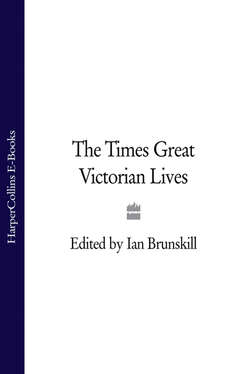Читать книгу The Times Great Victorian Lives - Ian Brunskill - Страница 6
THOMAS ARNOLD Pioneer educator and historian: ‘A death more to be mourned as a public loss…could scarcely have occurred.’ 15 JUNE 1842
ОглавлениеWE ANNOUNCED ON Monday the death of the Rev. Thomas Arnold, D.D., head master of Rugby School, which took place at Rugby on Sunday morning last, after a few hours’ illness of a disease of the heart. He had been master of Rugby school 15 years. Dr. Arnold had latterly devoted the whole of his time unoccupied by scholastic duties to his lectures on Modern History and to his History of Rome, and was contemplating a retirement, in the course of a few years, to his favourite residence at Fox-how, in Westmoreland. Dr. Arnold had, we believe, attained the age of 52. He was born at Cowes, Isle of Wight, and was the son of the late Mr. William Arnold, collector of Her Majesty’s Customs of that port. He was educated at Winchester school, and thence went to Corpus Christi College, Oxford. He was afterwards Fellow of Oriel. Dr. Arnold married a daughter of the late Rev. John Penrose, and has left behind him a numerous family. On Sunday morning Dr. Arnold was seized with pain and oppressed breathing, indicating to his medical attendants some sudden and severe affection, most probably of a spasmodic nature, in the heart. A loss more precious to his family, his friends, his country – a death more to be mourned as a public loss – could scarcely have occurred. Dr. Arnold had a sharp attack of fever some little time since, but appeared to have recovered from it. His father died early in life, and from a similar disease, we believe.
Arnold, born in the same year as Keats and Carlyle, only narrowly made it into the Victorian era. He died, prematurely, just short of his forty-seventh birthday while still in post as headmaster of Rugby School. He was, nevertheless, one of four Eminent Victorians selected to have their posthumous reputations sapped by Lytton Strachey in 1918. Arnold had transformed the moral and educational ethos of Rugby, an achievement variously celebrated in the work of two strikingly contrasted expupils: Arthur Penryn Stanley (whose influential Life and Correspondence of Thomas Arnold D.D. appeared in 1844) and Thomas Hughes’s enduringly popular Tom Brown’s Schooldays by an Old Boy (1857).
